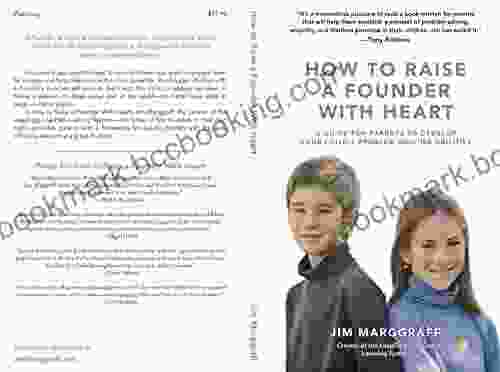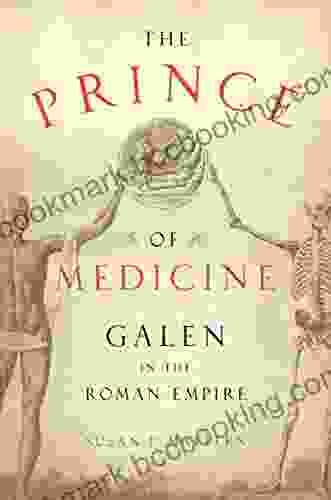Understanding and Helping Those Who Self-Injure

Self-injury is a serious mental health issue that affects millions of people worldwide. It is characterized by the intentional infliction of physical harm to oneself, such as cutting, burning, or hitting oneself. Self-injury is often a way for people to cope with emotional pain or distress, and it can be a sign of an underlying mental health condition, such as depression, anxiety, or post-traumatic stress disFree Download (PTSD).
4.5 out of 5
| Language | : | English |
| File size | : | 1957 KB |
| Text-to-Speech | : | Enabled |
| Screen Reader | : | Supported |
| Enhanced typesetting | : | Enabled |
| Word Wise | : | Enabled |
| Print length | : | 240 pages |
| Lending | : | Enabled |
There are many different reasons why people self-injure. Some people do it to relieve emotional pain or distress. Others do it to punish themselves for something they believe they have done wrong. Still others do it to feel more in control of their lives or to escape from reality.
Self-injury can be a very dangerous behavior. It can lead to serious physical injuries, such as infections, scarring, and even death. It can also interfere with a person's ability to function in everyday life, and it can damage relationships with family and friends.
If you are concerned that someone you know is self-injuring, it is important to take action. The first step is to talk to them about what is going on. Let them know that you are concerned about them and that you want to help. It is also important to listen to what they have to say and to try to understand their reasons for self-injuring.
If the person is willing to get help, there are a number of resources available. There are therapists who specialize in working with people who self-injure, and there are also support groups where people can share their experiences and get support from others who understand what they are going through.
Helping someone who self-injures can be a challenging experience, but it is important to remember that there is hope. With the right help, people who self-injure can recover and live full and productive lives.
Symptoms of Self-Injury
The symptoms of self-injury can vary depending on the individual, but there are some common signs that may indicate that someone is self-injuring:
- Cuts, burns, or other injuries on the body
- Hiding injuries or wearing long sleeves or pants to cover them up
- Talking about self-injury or death
- Expressing feelings of hopelessness or worthlessness
- Withdrawing from social activities
- Engaging in risky or self-destructive behaviors
If you are concerned that someone you know is self-injuring, it is important to talk to them about what is going on. Let them know that you are concerned about them and that you want to help.
Causes of Self-Injury
There are many different reasons why people self-injure. Some of the most common causes include:
- Emotional pain or distress
- Feeling out of control
- Punishing oneself for something one believes they have done wrong
- Escaping from reality
- Attention-seeking
- Underlying mental health condition, such as depression, anxiety, or PTSD
It is important to note that self-injury is not a sign of weakness or attention-seeking. It is a real and serious mental health issue that requires professional help.
Treatment for Self-Injury
The treatment for self-injury will vary depending on the individual's needs. Some of the most common treatments include:
- Therapy
- Medication
- Support groups
- Self-help strategies
Therapy is an important part of treatment for self-injury. A therapist can help the individual to understand the reasons why they self-injure and to develop coping mechanisms for dealing with emotional pain or distress. Medication may also be helpful in reducing symptoms of self-injury, such as depression or anxiety.
Support groups can provide a safe and supportive environment where people who self-injure can share their experiences and get support from others who understand what they are going through. Self-help strategies can also be helpful in managing self-injury. These strategies include things like learning relaxation techniques, developing healthy coping mechanisms, and setting goals for recovery.
Recovery from self-injury is a process that takes time and effort. However, with the right help, people who self-injure can recover and live full and productive lives.
How to Help Someone Who Is Self-Injuring
If you are concerned that someone you know is self-injuring, it is important to take action. The first step is to talk to them about what is going on. Let them know that you are concerned about them and that you want to help. It is also important to listen to what they have to say and to try to understand their reasons for self-injuring.
If the person is willing to get help, there are a number of resources available. There are therapists who specialize in working with people who self-injure, and there are also support groups where people can share their experiences and get support from others who understand what they are going through.
Helping someone who self-injures can be a challenging experience, but it is important to remember that there is hope. With the right help, people who self-injure can recover and live full and productive lives.
Self-injury is a serious mental health issue that affects millions of people worldwide. It is important to understand the symptoms, causes, and treatment options for self-injury so that you can help someone who is struggling with this issue. With the right help, people who self-injure can recover and live full and productive lives.
4.5 out of 5
| Language | : | English |
| File size | : | 1957 KB |
| Text-to-Speech | : | Enabled |
| Screen Reader | : | Supported |
| Enhanced typesetting | : | Enabled |
| Word Wise | : | Enabled |
| Print length | : | 240 pages |
| Lending | : | Enabled |
Do you want to contribute by writing guest posts on this blog?
Please contact us and send us a resume of previous articles that you have written.
 Book
Book Novel
Novel Page
Page Chapter
Chapter Text
Text Story
Story Genre
Genre Reader
Reader Library
Library Paperback
Paperback E-book
E-book Magazine
Magazine Newspaper
Newspaper Paragraph
Paragraph Sentence
Sentence Bookmark
Bookmark Shelf
Shelf Glossary
Glossary Bibliography
Bibliography Foreword
Foreword Preface
Preface Synopsis
Synopsis Annotation
Annotation Footnote
Footnote Manuscript
Manuscript Scroll
Scroll Codex
Codex Tome
Tome Bestseller
Bestseller Classics
Classics Library card
Library card Narrative
Narrative Biography
Biography Autobiography
Autobiography Memoir
Memoir Reference
Reference Encyclopedia
Encyclopedia Pamela J Compart
Pamela J Compart Yuniya Kawamura
Yuniya Kawamura Jenn Herman
Jenn Herman Mordicai Gerstein
Mordicai Gerstein John Coleman
John Coleman Jessica Kim
Jessica Kim Jeremie Kubicek
Jeremie Kubicek Jeremy Tolmie
Jeremy Tolmie Stuart Firestein
Stuart Firestein Jill Barnes
Jill Barnes Mark Leopold
Mark Leopold Jessica Minahan
Jessica Minahan Jessica Long
Jessica Long Katie Dahlheim
Katie Dahlheim Jeffrey A Kottler
Jeffrey A Kottler Molly Yeh
Molly Yeh Jeremy Sweet
Jeremy Sweet Josh Golding
Josh Golding Jenny Smith
Jenny Smith Jenny Handy
Jenny Handy
Light bulbAdvertise smarter! Our strategic ad space ensures maximum exposure. Reserve your spot today!

 Griffin MitchellRide into the Wild West with Molly On The Range: A Captivating Tale of...
Griffin MitchellRide into the Wild West with Molly On The Range: A Captivating Tale of... Rubén DaríoFollow ·19.2k
Rubén DaríoFollow ·19.2k Angelo WardFollow ·17.2k
Angelo WardFollow ·17.2k Michael ChabonFollow ·18.9k
Michael ChabonFollow ·18.9k Neal WardFollow ·3.6k
Neal WardFollow ·3.6k Mark TwainFollow ·17k
Mark TwainFollow ·17k Corey HayesFollow ·7.5k
Corey HayesFollow ·7.5k Arthur Conan DoyleFollow ·2.5k
Arthur Conan DoyleFollow ·2.5k Thomas HardyFollow ·18.2k
Thomas HardyFollow ·18.2k

 Patrick Rothfuss
Patrick RothfussGuide for Parents: Unlocking Your Child's Problem-Solving...
As a parent, you...

 Ignacio Hayes
Ignacio HayesThe Good Girls of Al Noor: A Gripping Tale of Hope and...
On March 15, 2019, a...

 Lee Simmons
Lee Simmons50 Games and Activities for All the Turkeys at Your...
Thanksgiving is a time for family, friends,...

 Sean Turner
Sean TurnerRewiring the World: From Edison to Google - The...
A Captivating...
4.5 out of 5
| Language | : | English |
| File size | : | 1957 KB |
| Text-to-Speech | : | Enabled |
| Screen Reader | : | Supported |
| Enhanced typesetting | : | Enabled |
| Word Wise | : | Enabled |
| Print length | : | 240 pages |
| Lending | : | Enabled |














